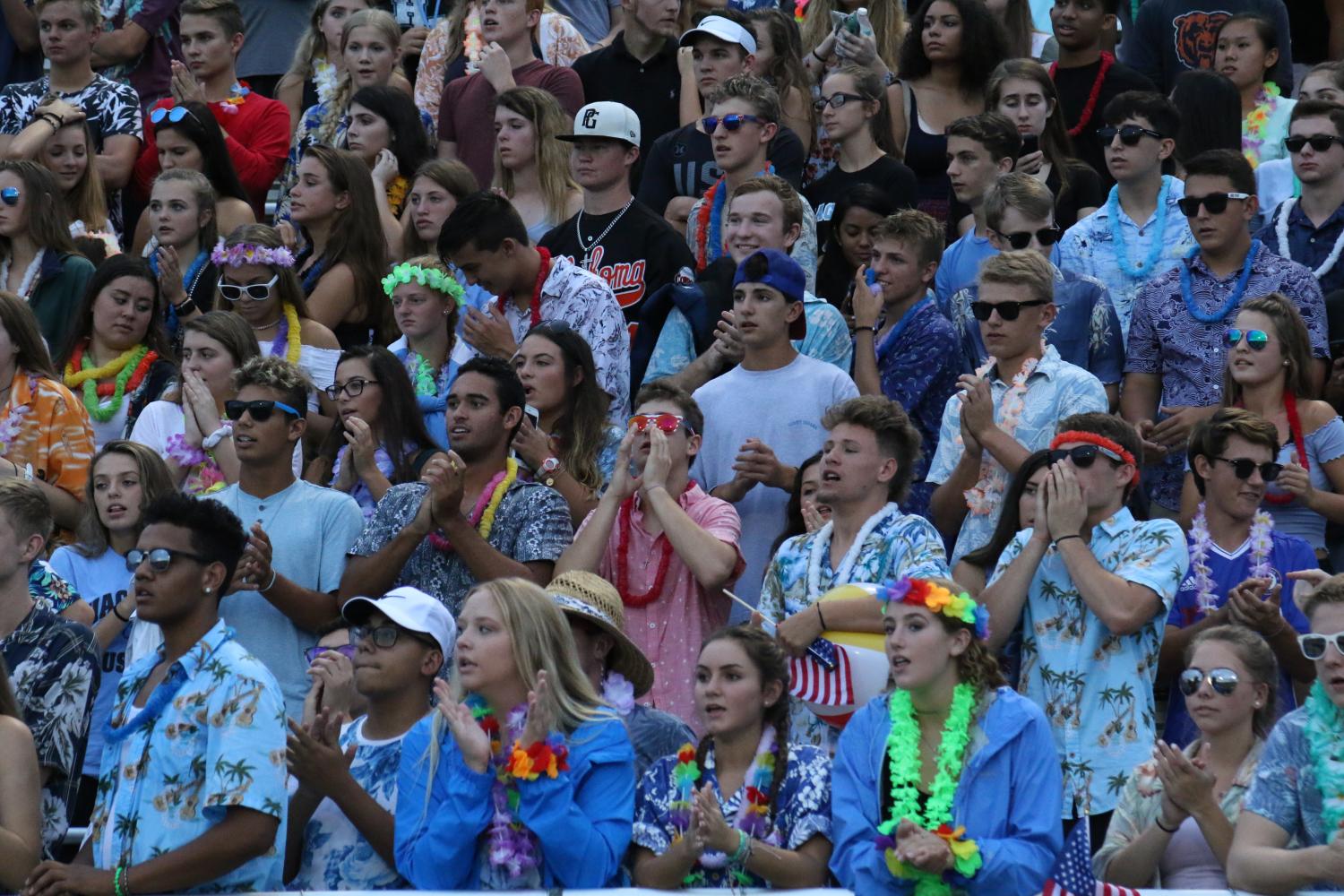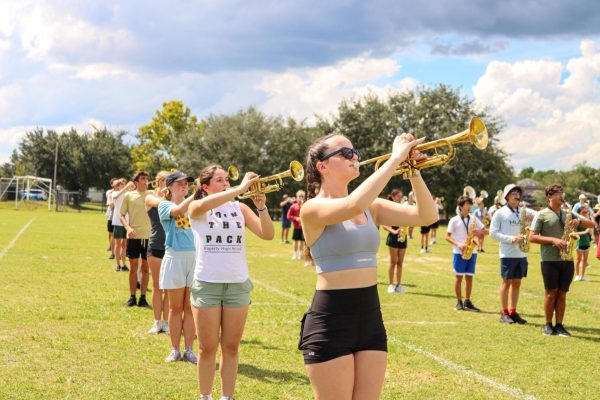Sports for non sports fans
A beginner’s guide to enjoying football games
Sitting in the bleachers Friday night, freshmen Celeste Dixon and Hannah Sanchez have no idea what is happening in the field below them. They are there for band, not for fun, but can not help but think the game would be more fun if they knew what was happening. Every once in awhile, the people in the stands rise to their feet and cheer because something big has happened. What it was, they have no idea.
“I don’t know why people are screaming when they scream,” Dixon said. “I don’t know who’s winning, I don’t understand the scoreboard, or how one gets points.”
Despite football being one of the most popular sports for students to watch, viewers do not understand everything, or even the basics about the game.
This can be a problem. From pep rallies to homecoming, school-spirit related activities revolve around football. The annual game against Oviedo sparks more school spirit and discussion than almost any other event. Football is a part of the high school experience, and even students who could not care less about football go to the games to socialize.
“School spirit just rallies behind football, and football enables the school spirit, because it gives everyone something to cheer for,” junior Sophia Benitez said.
So, for the sake of school spirit, and making the running and tackling down on the field make a little more sense, here are some of the basics of football, and how to have fun while watching it.
First, let’s get the purpose of the game out of the way. Football takes place on a grass or turf field, marked with lots of white lines. Most of those don’t matter so much, but the one at the end marks the “end zone”. Basically, it is a finish line. If your team gets the ball past that last line, they score, and everybody starts cheering.
Just a side note, those scores are worth six points, not any logical number.
Once a team has done that, they get a chance at an extra point. If they can kick the ball through the big yellow poles (the goalpost), they get another point. Think of it like extra credit on a test.
That whole process, from crossing the line, to kicking the extra point is called a touchdown. That’s a key term if you want to understand the game.
Here’s another key term: first down.
This is a little more complicated than a touchdown, so pay attention. In order to get the ball to the end zone, the players have a long way to go. To make this distance a little bit more manageable (and to keep the game from droning on as one team moves the ball inches at a time), the distance is broken into 10-yard segments. The players have four tries to move the ball 10 yards. Each try is called a down, and given a rank from first to fourth. If they succeed at moving the ball ten yards, they get another four downs to go 10 more yards.
Don’t worry if you missed any of that. All you really need to know is that a first down is good. So good in fact, that cheerleader Taniece Sims considers it the most important part of a football game.
“It’s their first down, and they’re clearly winning so far.” Sims said. “If you do ‘first and ten’ all those other times, you will get a touchdown and score.
Sometimes, things are not going so well. On their fourth try, or “down”, the team will be at risk of losing the ball. Sometimes, they’ll keep trying to get those last few yards, but often, they will opt for a field goal or a punt instead.
Punting gives the other team the ball, but further from the end zone than they would have gotten it off a failed fourth down.
If a team is close enough, they might try for a field goal.
Basically, a field goal is like the extra point before; a player will attempt to kick the ball through the yellow poles. If they make it, they get three points (no extra points this time). Clearly not as good as a touchdown, but better than nothing.
The next important thing about football is a turnover. A turnover changes the ball from one team’s hands to another, outside of the usual order of the game. There are two major ways a turnover is achieved–a fumble or an interception.
If you team gets an interception, this is good. It means they caught a ball that someone on the other team was supposed to catch. This will probably be accompanied by a lot of cheering.
A fumble, on the other hand, is not a good thing. If the ball is fumbled, it means that whoever was carrying the ball dropped it–anyone can recover a fumble, and it can lead to a turnover.
And that’s basically all there is to it…well, not really, but it’s All you need to know to have a good time. If you’re ever lost,just scream when everyone else screams, and take it till you make it. Its really about the school spirit anyways,not the game itself. to enjoy the game. When in doubt, cheer when everyone else does, and try to have a good time. It’s not really about the game anyways. It’s about the experience.
Your donation will support the student journalists of Hagerty High School. We are an ad-free publication, and your contribution helps us publish six issues of the BluePrint and cover our annual website hosting costs. Thank you so much!







